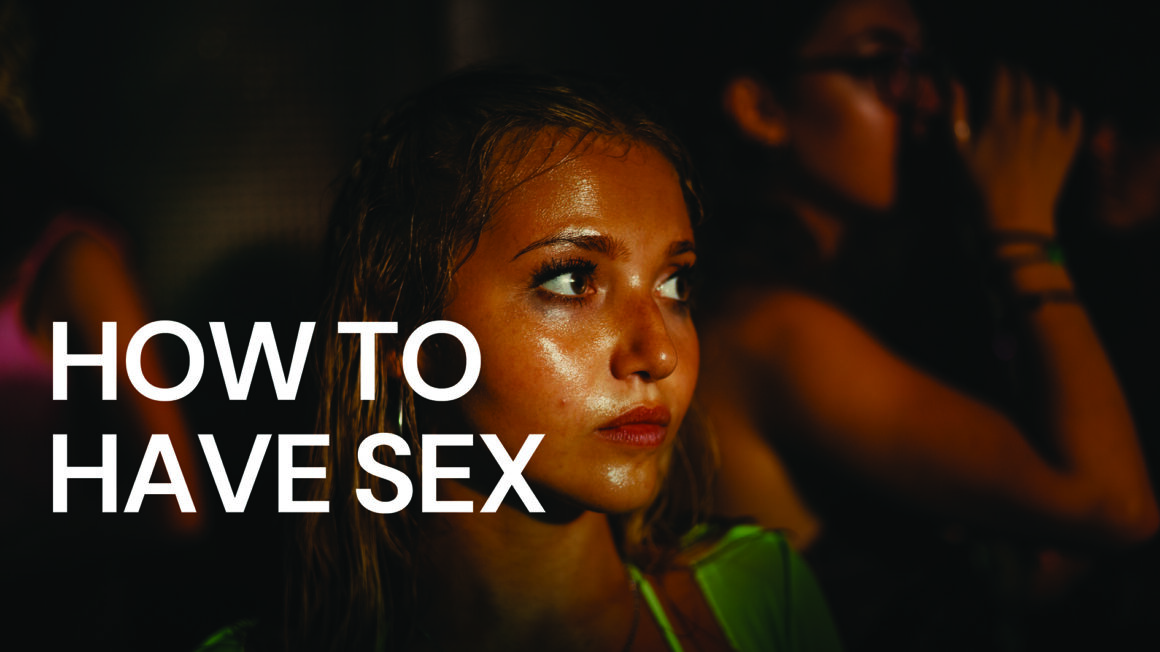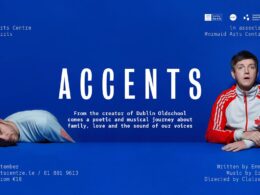Reviewed by Myriam Poizat-Marouki
(Spoiler warning)
‘Why didn’t you say something?’
As if the closeness of the young women’s friendship outweighed the societal pressures; this line will have resonated with millions more people’s past and present than one would want to believe.
Molly Manning Walker’s How to Have Sex starts with three teenage girls, Tara (Mia McKenna Bruce), Skye (Lara Peake) and Em (Enva Lewis), just out of their GCSEs exams, going on a summer holiday in Malia – a Greek beach resort renowned as a ‘party paradise’. For any woman my age watching (27 at the time of writing), the childlike excitement of the protagonists muddled with hints of discomfort from the dynamics of teenage friendships dictating how one should behave on holiday – felt like diving back ten years.
Despite one’s selective memory’s best attempts, each brutally truthful scene – both aesthetically and performatively – drags you back closer and closer to the recklessness of being 16 or 17 again. From the ‘drinkin-and-dancing-all-night’ shiny sweat under everyone’s running mascara, to sitting on the road at 5am eating cheesy chips with friends you’ve known forever and irrefutably believe are the best people you’ll ever meet – the first 30 minutes bring back some of the warmest memories. Yet, the glooming tension established early on in the movie and reflected through a choice of starkly realistic artwork, never quite lets you appreciate the party atmosphere. As a matter of fact, the mission of the holiday: to have sex, and almost more importantly for her friends than for her, to ensure that Tara (aka Taz) does.
As her storyline progressively becomes the centre point of the film, the societal pressure to ‘lose your virginity’, added to by the consistent diminishing of her already low self esteem by ‘best-friend’ Skye, is depicted in a way that warns you of the stomach churning patterns of a young teenage girl feeling coerced to prove to herself, and to others especially, that she’s capable of having sex if nothing else.
Her vulnerability unfortunately doesn’t pass by Paddy (Samuel Bottomley), a slightly older neighbour in the holiday resort vacationing with a group of friends, who will quickly see her as easy prey to chase.
The honest depictions of rape are probably the most difficult yet compelling parts of the movie. The first time on the beach, as Em and Skye have abandoned an inebriated Taz to pursue their own interests, doesn’t only portray the sickening coercion that Paddy puts Tara through, disregarding her lack of sobriety or genuine consent, but also the pressure to have sex she’s felt throughout the holiday up until that point. From Skye lending her the most uncomfortable yet sexualising clothes and putting her down at every occasion; to holiday reps and nightclub MCs pushing the young people to perform sexual acts in public – often as part of crude and demeaning ‘games’; the rampant sexism and objectification of women’s bodies and sex, internalised by the protagonists and externalised throughout Malia, is as truthful as it is triggering.
The second instance of rape is much more clear cut. Paddy assaulting Tara in her sleep leaves one with a crushing feeling of anger having previously witnessed Tara’s failed attempt to protect herself before anything happens. Her fear of breaking the societal expectations that she should ‘have sex’ again is heartbreaking. As is one of the final scenes, where Paddy’s friend Badger (Shaun Thomas), who Tara seemed to like, hints at knowing what Paddy did, while Em and Skye continue their day in the blissful ignorance of what their friend went through.
Just before the girls are about to fly home Tara reveals to Em what really happened to her. “Why didn’t you say something?” Em asks, and it feels like a knife twisting in the wound, as it introduces the reality of systemic oppression in every girl’s and woman’s life.
How to Have Sex is a powerful, progressive, LGBTinclusive, and bold story that dares to show the world not only some of the everyday experiences of sexism, but also the lack of societal support for survivors of abuse. As long as we live in a society where sex is stigmatised, gender-stereotyped, and consent not even recognised as something that should be taught through education from an early age, Taz’s story will continue to be the story of many other women and girls.












